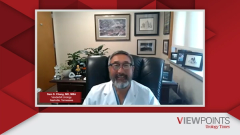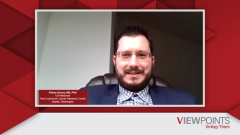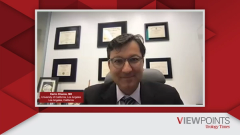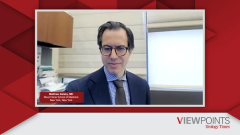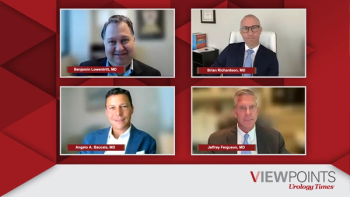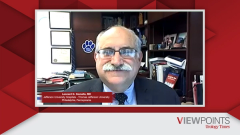
Support Resources for Patients With Bladder Cancer
Types of educational resources available to support patients with bladder cancer as recommended by urologists and medical oncologists.
Episodes in this series

Leonard G. Gomella, MD: There’s a lot going on. We have a lot of new drugs. We have a lot of new technologies that are being introduced in the field of bladder cancer and we need educational resources. We need resources to help our patients and the family understand what is needed at the time of diagnosis of bladder cancer and in their ongoing care. Matt, what kind of resources do you all provide for individuals up in New York with newly diagnosed bladder cancer, either localized or more advanced?
Matthew Galsky, MD: Yes. It does depend a little bit on the disease stage in terms of the educational approach that we take but typically that starts with education at the clinic visit itself. But I do always refer patients and their families to BCAN website, the Bladder Cancer Advocacy Network. There are a lot of great information that’s written in language that patients and families can understand on the website and also some pamphlets that provide a broader overview of bladder cancer and bladder cancer treatment. So that’s probably my go-to source outside of our counseling within the clinic itself for patients and families.
Leonard G. Gomella, MD: I agree with you, Matt. I think the BCAN resource is a wonderful book. We have other things out there. The AUA [American Urological Association]’s official foundation, the Urology Care Foundation, also has printed materials as well. Karim, you guys do anything differently out in your neck of the woods concerning patient education?
Karim Chamie, MD: Ours is obviously based on stage of disease and it’s oftentimes treatment-focused. In addition to the BCAN website, at UCLA we have some webcasts based on some of our clinical trials that we have available, some of the management options. There are some UCLA generated guides for BCG [Bacillus Calmette-Guerin], intravesical therapies. We have radical cystectomy pathways and packets to give to patients. More importantly, we also allow, and I think this is kind of innovative in the sense that a lot of places have patients who’ve undergone radical cystectomy and some of the patients who’ve gone through the process of short term, intermediate term, and long term from their surgery but we actually give numbers of patients who are going through BCG and are going through intravesical therapy to know what to expect. That’s oftentimes missed because patients want to know what it’s like. Sure, they can access it from blogs and forums but oftentimes the squeaky wheel gets the grease in those media, but in here you’re actually talking to real patients, good and bad, as far as patients who are undergoing BCG and intravesical therapies.
Leonard G. Gomella, MD: We have a lot of patient support groups for prostate cancer, and I think that’s really an area of need for us as we really need to get some more. Again, it’s a much less common cancer but I also think having our patient information centers at our various cancer centers, having support groups, is also a good resource. But I don’t think it’s as extensively used or extensively available as it is for prostate cancer.
Transcript edited for clarity.
Newsletter
Stay current with the latest urology news and practice-changing insights — sign up now for the essential updates every urologist needs.

